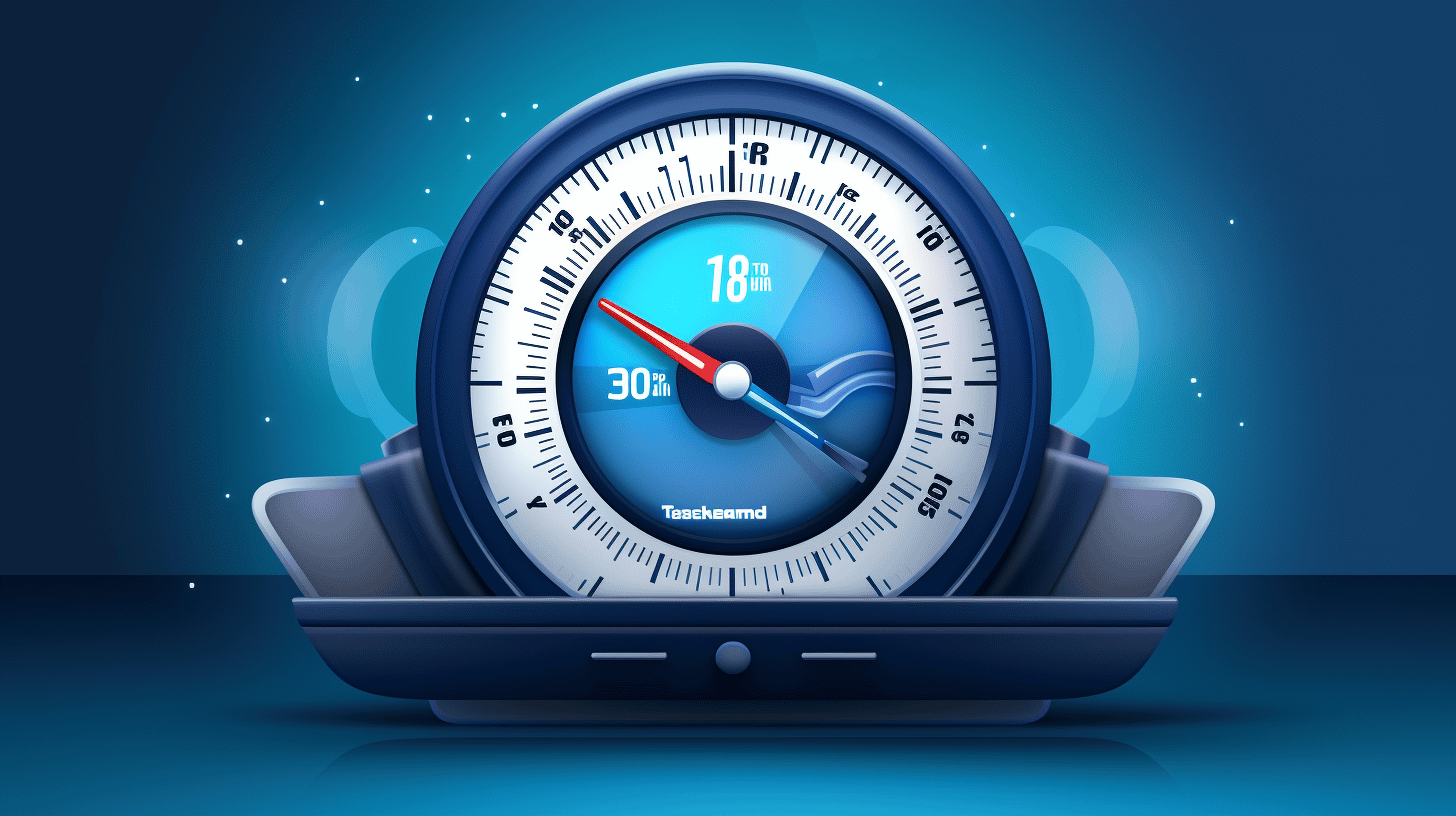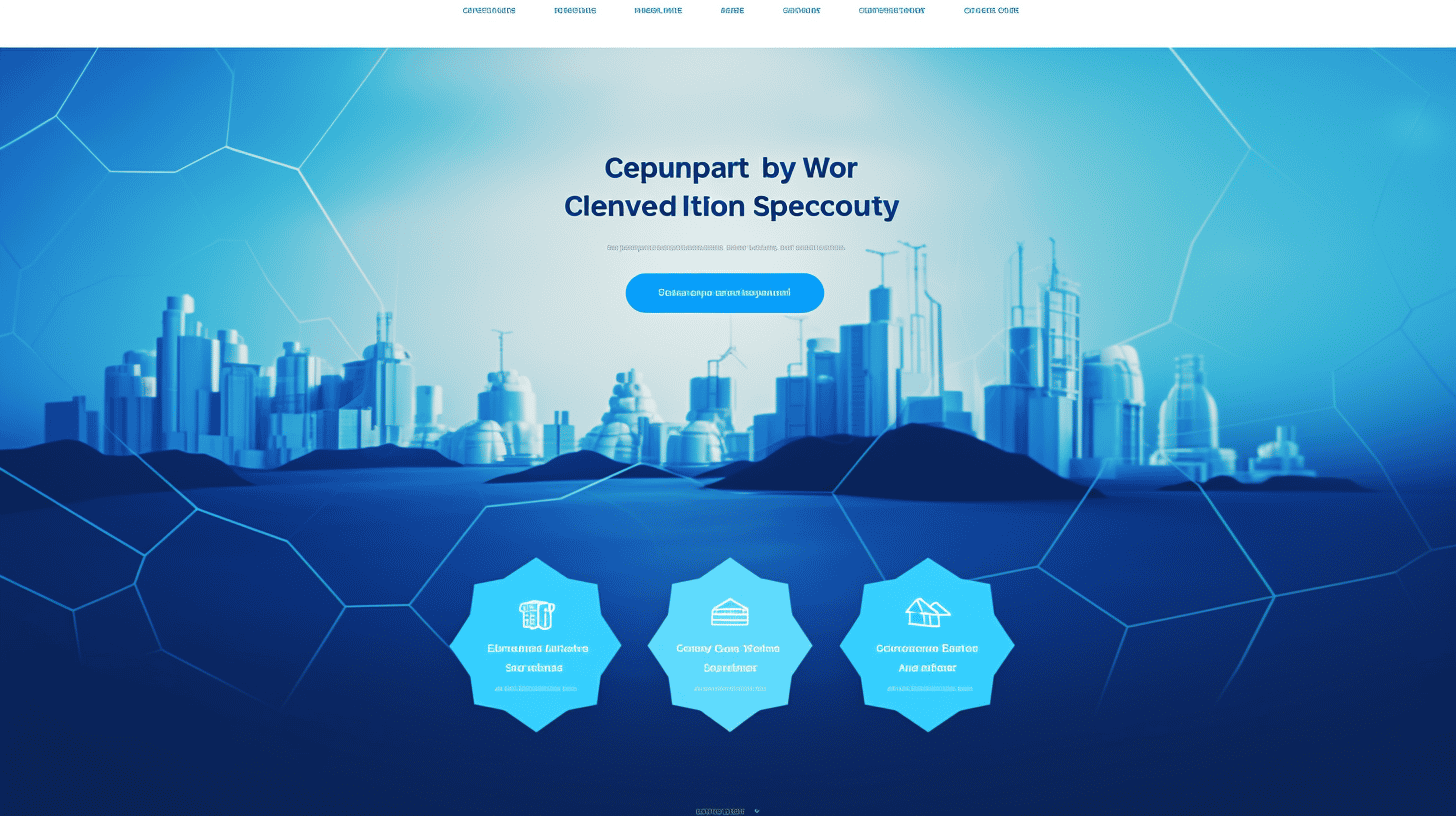在當今的數位環境中,擁有一個安全的網站至關重要,尤其是對於線上業務而言。隨著網路威脅的不斷增加,優先保障您的網路商店的 WordPress 安全至關重要。 WordPress 是一個流行的網站建立平台,包括電子商務商店,因為它具有用戶友好的介面和大量可自訂的功能。然而,這種受歡迎程度也使其成為網路犯罪分子利用漏洞並竊取敏感客戶資訊的目標。
作為電子商務商店老闆,了解您可能面臨的潛在網路安全威脅以及安全漏洞可能對您的線上業務造成的影響至關重要。透過實施最佳實踐和高級安全措施,您可以保護您的 WordPress 線上商店並為您的客戶提供安全的瀏覽和購物體驗。
因此,無論您是經驗豐富的 WordPress 用戶還是剛開始您的線上業務之旅,本文都將引導您了解 WordPress 網站安全的最佳實踐,並幫助您保護您的線上商店免受潛在的網路威脅。讓我們一起深入探索 WordPress 安全的世界! 🛡️
了解 WordPress 安全的重要性
在當今這個線上業務蓬勃發展的數位時代,網路安全已變得至關重要。隨著越來越多的企業依賴 WordPress 來經營其網站,認識到 WordPress 安全的重要性至關重要。安全的 WordPress 網站不僅可以保護敏感數據,還可以維護您的線上業務的聲譽和信任。
潛在的網路安全威脅
要了解 WordPress 安全的重要性,必須意識到可能危害您網站的潛在網路安全威脅。以下是 WordPress 網站可能面臨的一些常見威脅:
- 惡意軟體感染: 惡意軟體或惡意軟體可以透過易受攻擊的主題、外掛程式或使用者帳戶感染您的 WordPress 網站。這些感染可能導致未經授權的存取、資料洩露,甚至完全接管您的網站。
- 暴力攻擊: 在暴力攻擊中,駭客試圖透過反覆猜測使用者名稱和密碼來破解您網站的登入憑證。此類攻擊可能導致未經授權存取和控制您的 WordPress 儀表板。
- 分散式阻斷服務 (DDoS) 攻擊: DDoS 攻擊會使您的網站承受過多的流量,導致真正的用戶無法存取。這些攻擊可能會導致停機、收入損失和線上聲譽受損。
- 過時的軟體: 忽略更新您的 WordPress 核心、主題和外掛程式可能會導致您的網站容易受到安全漏洞的攻擊。駭客經常瞄準過時的軟體版本,因為它們更有可能存在已知的漏洞。
網路安全漏洞對線上業務的影響
低估 WordPress 安全性的重要性可能會對您的線上業務產生嚴重後果。網路安全漏洞可能對您的網站和線上形象造成以下影響:
- 資料遺失: 安全漏洞可能導致敏感客戶資料(例如個人資訊、付款詳細資訊和登入憑證)的遺失或被盜。這不僅使您的客戶面臨風險,而且還使您的企業面臨法律和財務後果。
- 聲譽損害: 安全漏洞的消息迅速傳播,客戶對無法保護其資料的企業失去了信任。由此造成的聲譽損害可能難以恢復,並可能導致客戶和潛在商機的流失。
- 財務損失: 從網路安全漏洞中恢復的代價可能是高昂的。您可能需要投資網路安全服務,聘請專家來修復漏洞並補償受影響的客戶。此外,因聲譽受損而導致的業務損失可能會產生重大的財務影響。
- 網站停機時間: 如果發生 DDoS 攻擊或其他安全漏洞,您的網站可能會經歷長時間的停機。這不僅給您的客戶帶來不便,還會影響您的搜尋引擎排名,可能會導致自然流量和收入的損失。
保護您的 WordPress 網站不僅是最佳實踐,而且也是當今數位環境中的必需品。透過實施完善的安全措施並保持積極主動,您可以保護您的網站、您的業務和客戶的信任。請繼續關注我們有關有效的 WordPress 安全性策略的下一部分。
WordPress 的常見安全性問題
WordPress 是一種流行的內容管理系統,為全球數百萬個網站提供支援。其用戶友好的介面和豐富的插件庫使其成為部落格、企業甚至電子商務網站的首選。然而,與其他平台一樣,WordPress 也無法避免安全漏洞。在本文中,我們將探討 WordPress 使用者可能遇到的常見安全性問題,並提供如何保護您的網站免受潛在威脅的見解。
暴力攻擊
WordPress 最常見的安全問題之一是暴力攻擊。在暴力攻擊中,駭客使用自動化工具系統地猜測您的登入憑證,希望獲得對您網站的未經授權的存取。可以將其想像為數字版本的竊賊,嘗試使用不同的組合來解鎖你的前門。
為了保護您的網站免受暴力攻擊,遵循以下最佳做法至關重要:
- 為您的 WordPress 管理員帳戶使用強大且獨特的密碼。避免使用常見或容易猜測的密碼。
- 限制允許的登入嘗試次數。安裝類似插件 限制登入嘗試 設定最大登入嘗試次數,並在多次嘗試失敗後暫時鎖定 IP 位址。
- 實施雙重認證 (2FA) 以增加安全性。插件如下 雙重因素 或者 谷歌身份驗證器 可以幫助您設定此功能。
SQL注入
SQL 注入是 WordPress 使用者另一個重大的安全問題。在 SQL 注入攻擊中,駭客將惡意程式碼注入您網站的資料庫查詢中,從而允許他們操縱或提取敏感資訊。
為了減輕 SQL 注入的風險,請考慮以下預防措施:
- 保持您的 WordPress 核心、主題和外掛程式為最新版本。開發人員經常發布安全性修補程式和更新來解決漏洞。
- 與資料庫互動時使用準備好的語句或參數化查詢。此技術可確保使用者輸入正確清理,並防止執行惡意程式碼。
- 使用信譽良好的安全插件,例如 字柵欄 或者 蘇庫里安全 監控並防止 SQL 注入。
跨站腳本 (XSS)
跨網站腳本 (XSS) 是一種安全漏洞,可讓攻擊者將惡意腳本注入其他使用者檢視的網頁。這些腳本可以執行各種操作,例如竊取會話 cookie 或將使用者重新導向到惡意網站。
為了保護您的 WordPress 網站免受 XSS 攻擊,請記住以下提示:
- 將您的 WordPress 安裝、主題和外掛程式更新至最新版本。開發人員經常在更新中解決安全漏洞。
- 使用包含 Web 應用程式防火牆 (WAF) 的安全插件來偵測和阻止 XSS 攻擊。熱門選擇包括 蘇庫里安全 和 i主題安全.
- 在將使用者輸入顯示在您的網站上之前,請對其進行清理。 WordPress 提供了以下內建功能
sanitize_text_field()和esc_html()這有助於防止 XSS 攻擊。
文件包含漏洞
當攻擊者利用漏洞將任意檔案包含到您的 WordPress 網站上時,就會發生檔案包含漏洞。這可能導致未經授權的存取、惡意程式碼的執行,甚至敏感資訊的洩漏。
使用以下措施保護您的 WordPress 網站免受檔案包含攻擊:
- 將您的 WordPress 核心、主題和外掛程式更新至最新版本。開發人員經常發布安全性修補程式來解決漏洞。
- 在 WordPress 管理區域內停用文件編輯。這樣可以防止攻擊者在未經授權存取您的網站時修改重要文件。
- 使用提供文件完整性監控的安全插件。插件如下 i主題安全 或者 蘇庫里安全 可以幫助您監控和偵測任何未經授權的文件變更。
透過了解和解決這些常見的安全問題,您可以保護您的 WordPress 網站免受潛在威脅。保持警惕,確保您的 WordPress 安裝為最新版本,並採用強大的安全措施來確保您的網站和敏感資料的安全。
WordPress 網站安全的最佳實踐
在當今的數位環境中,確保您的 WordPress 網站的安全至關重要。隨著網路威脅和駭客攻擊的不斷增加,實施最佳實踐來保護您的網站和敏感的用戶資訊至關重要。本文將探討 WordPress 網站安全的一些最佳實踐,包括定期更新、強密碼和使用者權限、實施安全性外掛程式以及選擇安全的託管平台。遵循這些建議,您可以顯著增強 WordPress 網站的安全性並最大限度地降低潛在安全漏洞的風險。
定期 WordPress 更新
維護安全的 WordPress 網站最關鍵的步驟之一是定期更新您的 WordPress 核心、外掛程式和主題。這些更新通常包括解決已知漏洞的安全性補丁,確保您的網站免受最新威脅。透過讓您的網站保持更新,您可以利用這些安全性修補程式並防止駭客的潛在攻擊。
以下是定期進行 WordPress 更新時需要牢記的一些要點:
- 盡可能啟用 WordPress 核心、外掛和主題的自動更新。此功能可讓您的網站保持最新的安全補丁,而無需人工幹預。
- 如果未啟用自動更新,請定期手動檢查更新。這可確保您不會錯過任何關鍵的安全性修補程式。
- 在更新之前,建議備份您的網站。雖然更新通常是可靠的,但可能會出現無法預料的問題。擁有備份可確保您在更新過程中出現任何問題時能夠快速還原您的網站。
強密碼和使用者權限
使用強密碼並強制執行適當的使用者權限是增強 WordPress 網站安全性的另一種有效方法。弱密碼會使駭客更容易未經授權存取您的網站,而授予過多的使用者權限可能會增加潛在安全漏洞的風險。
請考慮以下有關密碼和使用者權限的最佳做法:
- 鼓勵您的用戶(包括您自己)使用強大而獨特的密碼。強密碼由大寫、小寫字母、數字和特殊字元的組合組成。
- 定期檢查使用者帳戶及其相關權限。刪除任何不必要的帳戶,並確保每個使用者都具有其角色所需的適當存取等級。
- 實施多因素身份驗證 (MFA) 以增加安全性。 MFA 要求用戶提供額外的驗證,例如發送到他們的行動裝置的唯一代碼以及密碼,以便登入。
實施安全插件
WordPress 提供了各種各樣的安全插件,旨在為您的網站添加額外的保護層。這些外掛程式可以幫助您偵測和預防潛在的安全威脅,監控您的網站是否有可疑活動,並加強您的 WordPress 網站的整體安全性。
考慮為您的 WordPress 網站安裝以下安全性外掛:
| 外掛 | 描述 |
|---|---|
| 字柵欄 | Wordfence 是一款受歡迎的安全性插件,提供即時威脅偵測、惡意軟體掃描、防火牆保護和登入安全性等功能。 |
| 蘇庫里安全 | Sucuri Security 是一款全面的安全插件,提供網站安全監控、惡意軟體掃描和進階 DDoS 保護。 |
| i主題安全 | iThemes Security(以前稱為 Better WP Security)提供暴力破解保護、檔案完整性監控、WordPress 核心檔案變更偵測等功能。 |
請記住,雖然安全插件很有用,但它們不應取代其他安全最佳實踐。定期更新您的插件並保持正確配置以最大限度地發揮其有效性至關重要。
安全託管平台
選擇一個安全的 WordPress 託管平台對於確保您網站的整體安全至關重要。可靠的託管服務供應商將實施各種安全措施,定期更新其伺服器軟體,並提供強大的備份解決方案來保護您網站的資料。
為您的 WordPress 網站選擇託管平台時,請考慮以下因素:
- 尋找提供強大安全功能的託管服務供應商,例如防火牆保護、惡意軟體掃描和定期伺服器端更新。
- 確保託管平台提供自動備份,並在發生任何安全事件或資料遺失時提供簡單的復原選項。
- 檢查 SSL/TLS 支持,因為它會加密您的網站與訪客之間的通信,確保安全的資料傳輸。
透過遵循這些 WordPress 網站安全最佳實踐,您可以大幅降低潛在安全漏洞的風險,並確保您的網站及其使用者的敏感資訊的安全。請記住,實施主動的安全方法總是比處理安全事件的後果更好。因此,請優先考慮安全性並保護您的 WordPress 網站免受網路威脅。
先進的安全措施
在當今的數位環境中,確保您的線上安全比以往任何時候都更加重要。隨著網路威脅日益複雜,實施先進的安全措施來保護敏感資訊並防止潛在的違規行為至關重要。本文將探討增強網站安全性的四個關鍵策略:使用 SSL 憑證、實施防火牆、利用雙重認證以及定期備份和維護。
🛡️ 使用 SSL 憑證
保護您的網站安全的第一道防線之一是使用 SSL(安全通訊端層)憑證。 SSL 憑證可對使用者瀏覽器和您的網站之間的通訊進行加密,保護登入憑證、信用卡資訊和個人資訊等敏感資料免遭潛在的竊聽或竄改。
實施 SSL 憑證有幾個好處,包括:
- 增強信任: 使用者更有可能信任 URL 中顯示掛鎖符號和「https://」的網站,這表示連線安全性。
- 更高的搜尋引擎排名: 谷歌等搜尋引擎將 SSL 憑證視為排名因素,使安全的網站在搜尋結果中佔據優勢。
- 防止資料外洩: SSL 加密可防止未經授權存取使用者和網站之間傳輸的數據,從而降低資料外洩的風險。
為了確保正確實施 SSL,請考慮以下事項:
- 選擇正確的證書: 有多種類型的 SSL 憑證可用,包括網域驗證 (DV)、組織驗證 (OV) 和擴充驗證 (EV)。評估您的需求並選擇最合適的證書。
- 定期監控證書有效性: SSL 憑證有一個有效期限。定期監控和更新您的證書,以避免安全連線中斷。
- 更新內部連結: 安裝 SSL 憑證後,更新所有內部連結以確保它們指向您網站的安全版本 (https://)。
🔥 實施防火牆
防火牆透過過濾傳入和傳出的網路流量,充當您的網站和潛在威脅之間的屏障。它監控並阻止未經授權的存取嘗試,保護您的網站免受惡意攻擊。
實施防火牆有多種好處,例如:
- 網路保護: 防火牆分析流量並阻止可疑活動,防止未經授權存取您的網站伺服器。
- 減緩 DDoS 攻擊: 分散式阻斷服務 (DDoS) 攻擊會使您的網站流量過大,從而導致停機和效能問題。防火牆可以透過過濾惡意流量來幫助減輕這些攻擊。
- 應用程式級安全性: 先進的防火牆可以檢查傳入請求的內容,偵測並阻止潛在威脅,例如 SQL 注入和跨站點腳本 (XSS) 攻擊。
實施防火牆時,請牢記以下幾點:
- 選擇正確的防火牆類型: 防火牆有多種類型,包括網路防火牆、基於主機的防火牆和基於雲端的防火牆。評估您的需求並選擇最合適的選項。
- 定期更新防火牆軟體: 防火牆軟體應定期更新以防禦新出現的威脅。設定自動更新或監視防火牆提供者的更新。
- 配置防火牆規則: 自訂防火牆規則以滿足您網站的特定安全需求。預設拒絕所有傳入流量並僅允許必要的協定和連接埠。
🔒 利用雙重認證
雙重認證 (2FA) 是一種額外的安全層,要求使用者在存取帳戶或系統之前提供兩種形式的身份證明。即使密碼被洩露,它也增加了一道防止未經授權存取的額外屏障。
實施 2FA 的優點包括:
- 增強安全性: 2FA 顯著降低了未經授權存取的風險,因為它既需要使用者知道的東西(密碼),也需要使用者擁有的東西(例如,行動裝置、安全令牌)。
- 防範與密碼相關的攻擊: 2FA 增加了額外的安全層,使攻擊者更難透過與密碼相關的攻擊(例如暴力破解或網路釣魚嘗試)來取得存取權限。
- 身份驗證方法的靈活性: 雙重身份驗證可以透過多種方法實現,包括簡訊、身份驗證應用程式或實體安全金鑰,讓使用者可以選擇最方便的選項。
實施 2FA 時,請考慮以下事項:
- 選擇信譽良好的身份驗證提供者: 選擇提供安全且使用者友好的 2FA 解決方案的可靠身份驗證提供者。
- 鼓勵用戶啟用 2FA: 向您的用戶介紹 2FA 的好處並鼓勵他們為自己的帳戶啟用它。
- 實作備份驗證方法: 如果使用者無法存取其主要的 2FA 方法,請確保存在備用身份驗證方法,例如備用代碼或備用聯絡資訊。
🔄 定期備份與維護
定期備份和維護對於確保資料完整性以及從潛在的安全事件或系統故障中復原至關重要。透過定期備份您的網站的文件和資料庫,您可以最大限度地減少任何安全漏洞或不可預見的問題的影響。
定期備份和維護的好處包括:
- 資料恢復: 如果發生資料遺失或洩露,最近的備份可讓您將網站恢復到先前的安全狀態。
- 防止網站故障: 定期維護和更新有助於修補漏洞和修復錯誤,確保您的網站順利且安全地運作。
- 偵測安全漏洞: 在維護期間,您可以識別任何可疑活動或安全漏洞的跡象,並及時採取措施降低潛在風險。
為了保持有效的備份和維護,請考慮以下事項:
- 自動和安排備份: 使用備份解決方案或外掛程式自動進行定期備份,並確保它們涵蓋所有必要的文件和資料庫。
- 定期測試備份: 透過測試復原過程定期驗證備份的完整性和可用性。
- 隨時了解軟體更新: 定期更新您的網站軟體,包括內容管理系統 (CMS) 和插件,以修補漏洞並確保最佳的安全性和效能。
透過將這些先進的安全措施納入您的網站基礎設施,您可以顯著增強其整體安全態勢。實施 SSL 憑證以建立安全連接,利用防火牆阻止惡意流量,啟用雙重認證以增加使用者保護,並定期備份和維護您的網站以確保快速恢復並防止潛在的安全事件。請記住,積極主動並勤勉地進行安全工作是確保您的線上狀態安全的關鍵。
結論
總而言之,保護您的 WordPress 線上商店對於您網站的安全和客戶資料的保護至關重要。透過實施網站安全最佳實務並採用先進的安全措施,您可以大幅降低網路安全威脅和潛在漏洞的風險。
請記住,定期更新您的 WordPress 平台、使用強密碼和使用者權限以及實施安全性外掛程式是保護您網站的重要步驟。此外,選擇像 Managed-WP 這樣的安全託管平台可以為您的線上商店提供額外的保護。
為了進一步增強安全性,請考慮使用 SSL 憑證進行加密通訊、實施防火牆來阻止惡意流量以及啟用雙重認證以增加身分驗證安全性。不要忘記定期備份您的網站並執行日常維護,以確保您的 WordPress 網上商店保持安全和最新。
透過優先考慮網站安全,您可以與客戶建立信任並為線上購物創建一個安全的環境。立即投資您的 WordPress 網上商店的安全性,以保護您的業務並為您的客戶提供安心。
託管WP 提供優質託管的 WordPress 雲端託管平台,可簡化基礎架構、提供專家的問題解決方案並確保您的線上商店的安全。使用 Managed-WP 保護您的網站,專注於發展您的業務,而不必擔心網路安全威脅。
常見問題解答
- 保護 WordPress 網路商店安全的最佳做法是什麼?
保護 WordPress 線上商店安全的最佳實踐包括:1. 保持 WordPress 和插件為最新版本,2. 使用強密碼和雙重認證,3. 實施可靠的網站寄存解決方案,4. 安裝安全插件,以及 5. 定期備份您網站的資料。
- 為什麼保持 WordPress 和外掛更新對於網站安全很重要?
保持 WordPress 和外掛程式更新至關重要,因為它可以確保您擁有最新的安全性修補程式、錯誤修復和功能。過時的軟體更容易受到駭客攻擊,因此定期更新有助於保護您的網路商店免受潛在的安全威脅。
- 什麼是雙重認證?
雙重驗證要求使用者在存取其帳戶之前提供兩種形式的身份證明,從而為您的 WordPress 網站增加了一層額外的安全性。即使密碼被洩露,它也大大降低了未經授權存取的風險。
- 網路託管的選擇如何影響網站安全性?
選擇可靠的網站寄存服務提供者對於網站安全非常重要。信譽良好的主機將擁有強大的安全措施,包括防火牆、惡意軟體掃描、定期備份和伺服器監控,確保您的網路商店擁有更安全的環境。
- 我的 WordPress 網路商店需要安全外掛嗎?
是的,強烈建議您的 WordPress 網上商店使用安全插件。安全外掛程式可主動防禦惡意軟體、駭客攻擊、暴力攻擊等常見威脅,並協助您有效監控和保護您的網站。



















